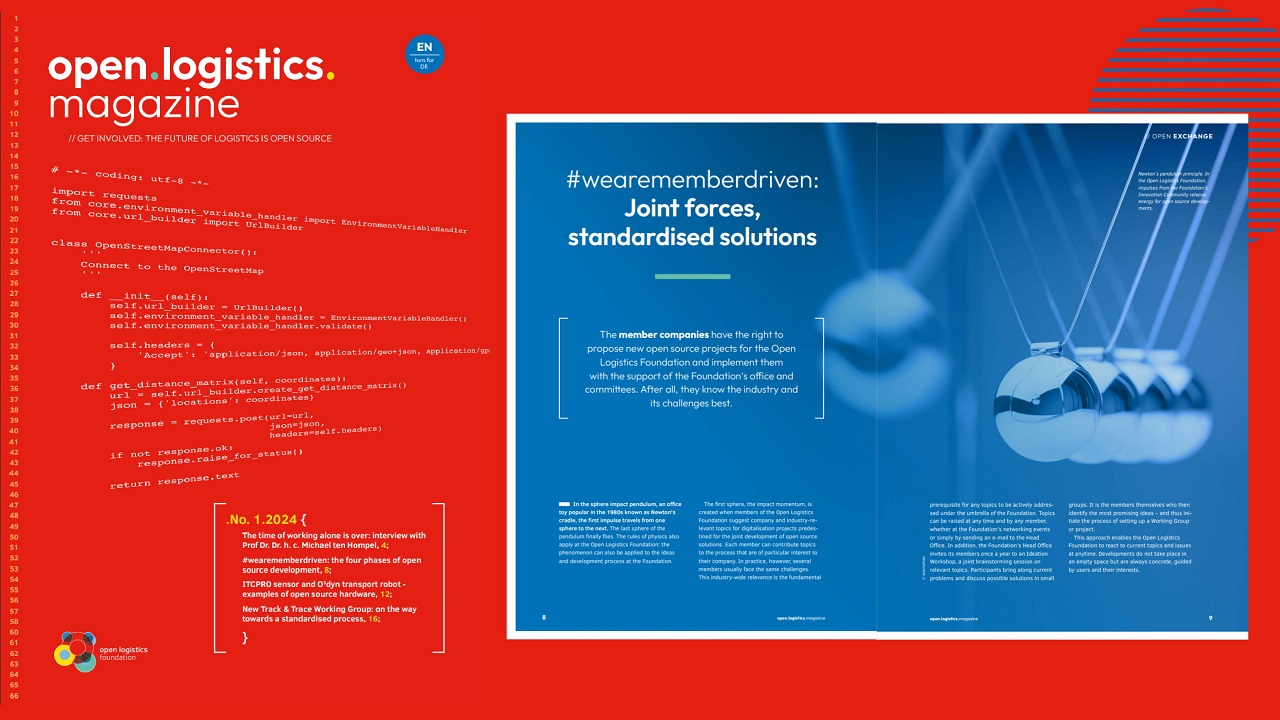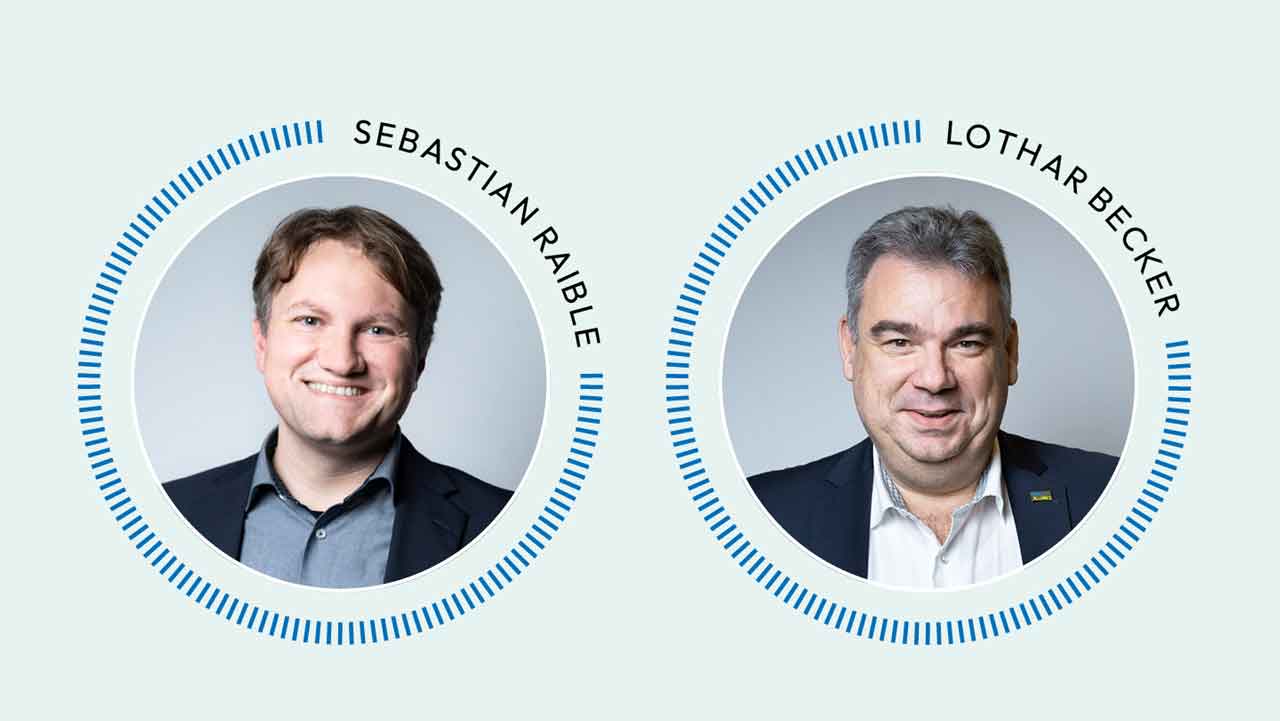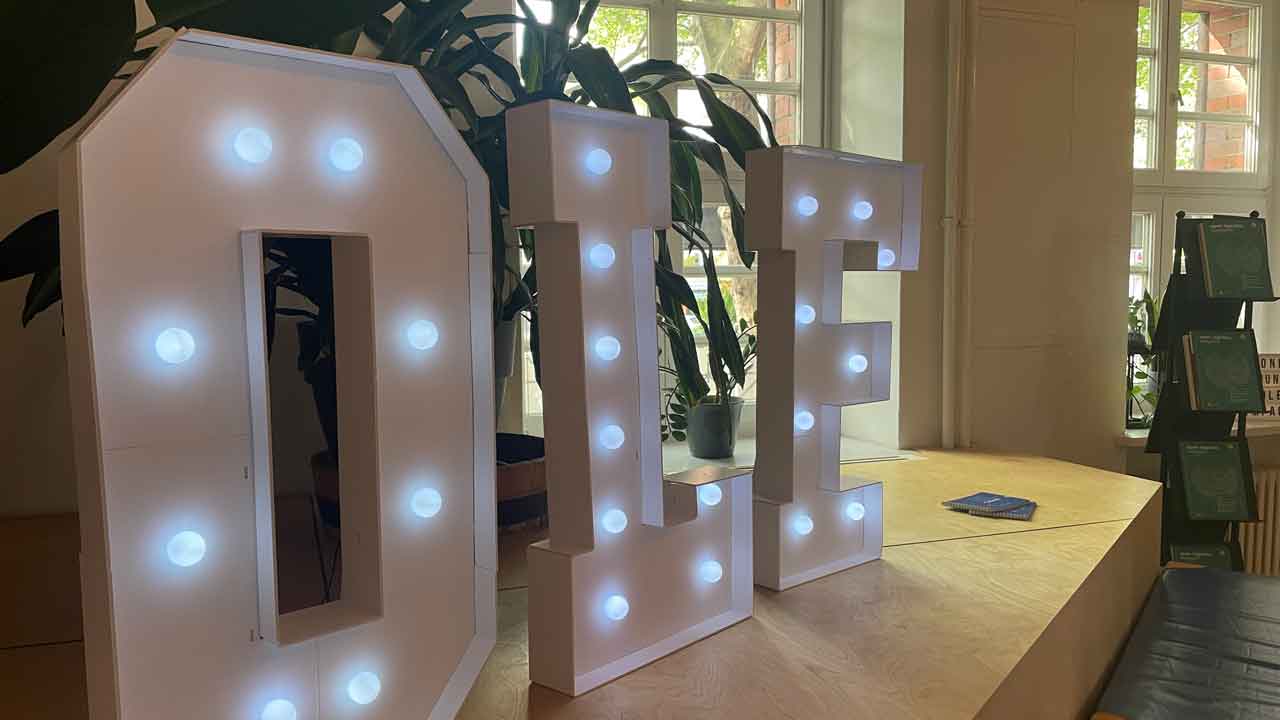Newton’s pendulum principle: In the Open Logistics Foundation, impulses from the Foundation’s Innovation Community release energy for open source developments.
In the sphere impact pendulum, an office toy popular in the 1980s known as Newton’s cradle, the first impulse travels from one sphere to the next. The last sphere of the pendulum finally flies. The rules of physics also apply at the Open Logistics Foundation: the phenomenon can also be applied to the ideas and development process at the Foundation.
The first sphere, the impact momentum, is created when members of the Open Logistics Foundation suggest company and industry-relevant topics for digitalisation projects predestined for the joint development of open source solutions. Each member can contribute topics to the process that are of particular interest to their company. In practice, however, several members usually face the same challenges. This industry-wide relevance is the fundamental prerequisite for any topics to be actively addressed under the umbrella of the Foundation. Topics can be raised at any time and by any member, whether at the Foundation’s networking events or simply by sending an e-mail to the Head Office. In addition, the Foundation’s Head Office invites its members once a year to an Ideation Workshop, a joint brainstorming session on relevant topics. Participants bring along current problems and discuss possible solutions in small groups. It is the members themselves who then identify the most promising ideas – and thus initiate the process of setting up a Working Group or project.
This approach enables the Open Logistics Foundation to react to current topics and issues at anytime. Developments do not take place in an empty space but are always concrete, guided by users and their interests.
From topic to solution, from the idea to the code: This is how the topics in the Open Logistics Foundation are realised
| Phase 1: The Topic. |
| What? Development of ideas for open source solutions Where? Open Logistics Foundation Who? Member companies, Head Office, Logistical Steering Committee |
| Current challenges facing companies are the starting point of open source developments under the umbrella of the Open Logistics Foundation. The Head Office supports the companies in concretising their topics as part of a structured ideation process based on the design thinking method. This includes market and technology research. In some cases, prototypes are also realised to test initial ideas. At the end of phase 1, a decision is made by consensus based on a defined evaluation matrix as to whether the topic is suitable for processing within the Foundation or not. The criteria include, for example, the chances of realisation, the members‘ interest, or the logistical relevance. If a topic is not realised, this is no failure. This is because it is also essential for members to recognise where cooperation is not worthwhile. |
| Phase 2: The Working Group. |
| What? Common objectives for open source development Where? Open Logistics Foundation Who? Interested member companies, Head Office, Logistical Steering Committee |
| As soon as it has been established that an idea has the potential for a Working Group, interested member companies set about assessing the feasibility of the idea. To this end, employees from various functions of the member companies come together with their expertise. This interest group works through a list of requirements, which focuses in particular on the logistical relevance of the topic. The Foundation’s Logistical Steering Committee and the Head Office support the questionnaire‘s preparation. For the Working Group to be established, at least one company in the interest group must be prepared to take the lead. The next step involves focused work on the framework conditions. Where appropriate, experts are consulted to clarify certain issues and open questions, including legal ones, and reliably. This is because the biggest challenges often lie not in the technical development but in the different structures of the companies involved. On this basis, projects on specific topics can then be set up where the actual development occurs. |
| Phase 3: The Project. |
| What? Realisation of open source development Where? Open Logistics Foundation Who? Developer teams from Working Group member companies, Head Office, Technical Steering Committee |
| Now, the work on the open source solutions on a code basis begins, and the developers of the member companies are in demand. The Foundation’s Technical Steering Committee supports the process and defines the technical framework conditions for software development. The code is published as open source in the Open Logistics Repository. The teams aim to transfer the solutions to practical tests as early as possible. The lessons learned help the developers continuously improve the solutions. |
| Phase 4: The Solution. |
| What? Individualisation / Commercialisation Where? Market Who? Companies |
| Whether a member of the Open Logistics Foundation or not, every company can now customise the components to its specific business processes and integrate them into its IT landscape. Commercial use is expressly desired. As the work can be downloaded from the repository at any time, each company can decide when the time is right for customisation. Most companies wait until the solutions developed in phase 3 have reached a certain level of maturity. Companies can do this themselves if they have the necessary developer resources or outsource it to IT service providers or R&D partners. Changes to the basis – the core of the code – must be made together and in one place. This is the only way to create the intended defacto standards and maximise the efficiency potential for everyone. |
How are the topics implemented in the Open Logistics Foundation?
The Open Logistics Foundation spans identifying industry-wide challenges and processing organisational, technical and legal framework conditions for the concrete development of open source solutions. The overarching goal is to create efficient and sustainable global supply chains. The process from the idea to the code is roughly divided into four phases. In terms of implementation, they overlap at many points, and there are areas of permeability. Based on the underlying fair and neutral processes, the participation and neutrality of the work in the Foundation are guaranteed.
Interested companies and organisations can find an overview of the topics for possible open source developments currently being discussed in the Open Logistics Foundation in the “Idea Collection” in the Open Logistics Repository (GitLab). The topics and their respective processing status are listed there. Members or potential members of the Innovation Community can also submit their suggestions here. https://git.openlogisticsfoundation.org/ideation-topics/ideation-topics/-/boards
This article was published in the third edition of the Open Logistics Magazine. You can read the entire magazine and register for future editions here.





